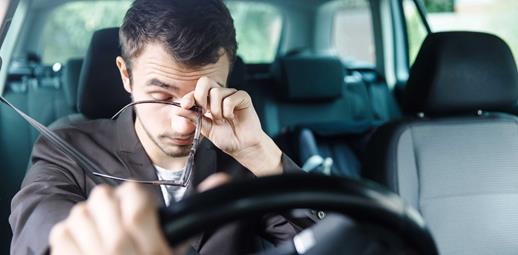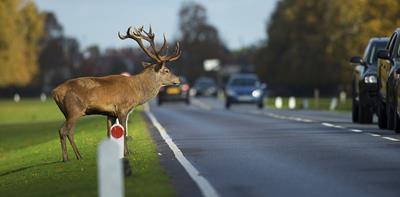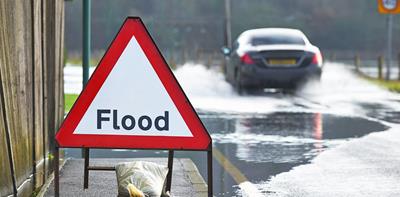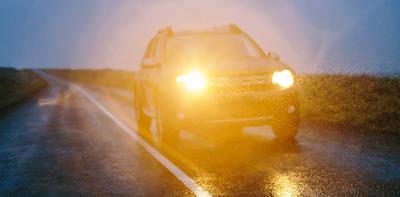
Everyone knows how dangerous it can be to fall asleep at the wheel. But even just feeling tired or drowsy while driving can be risky for you, your passengers and other road users.
In fact, it can seriously impact your driving abilities, from slowing your reaction times to causing silly mistakes like forgetting to check your mirrors when changing lanes.
Some roads can make you feel particularly drowsy. For example, driving on an endless, featureless motorway, with few interruptions and little stimulation could definitely increase tiredness, especially if you’re relying on cruise control.
Worryingly, one in eight (13%) UK drivers have admitted to falling asleep at the wheel, according to 2018 research carried out for the AA Charitable Trust. Nearly two fifths (37%) of drivers say that they have experienced being so tired they were scared they might fall asleep while driving.
The effects of driving when tired can be devastating. One study found one in six crashes resulting in death or injury on major roads are fatigue-related.
Recognising your own tiredness
Fatigue is hard to spot. Unlike drink or drugs, there’s no way of testing a driver’s tiredness. And sometimes drivers are simply not aware of just how tired they are. America’s National Sleep Foundation provides a reminder of the signs that you’re tired, including:
- Yawning repeatedly, heavy eyelids and rubbing your eyes
- Feeling restless and irritable
- Difficulty focusing, as well as daydreaming or wandering thoughts
- Trouble remembering the last few miles driven, or missing exits or traffic signs
- Trouble keeping your head up
- Drifting from your lane or driving over rumble strips
Tips to stay safe
Some new cars now come fitted with eye-tracking technology that can detect when drivers start to become drowsy and prompt them to take a break. But if your car doesn’t benefit from such tech, you can at least take some practical steps to avoid dozing off behind the wheel:
- Avoid driving if you’re tired, especially for a long journey.
- Plan ahead and get 7-8 hours of sleep before your drive. Alternatively, if you don’t manage that, take a short nap before you hit the road.
- At the first sign of tiredness while driving, pull over somewhere safe and take a 20-minute nap. Allow time for that horrible groggy feeling to wear off after waking up.
- Take another driver with you on long trips. You can swap places every two hours and split the drive.
- Don’t drink any alcohol. Even if you’re way below the limit, you might still feel drowsy. Caffeine, on the other hand, can help improve alertness. Just don’t expect it to kick-in straight away, and remember that a caffeine kick won’t last very long.
- If you can avoid it, don't drive when you would normally be fast asleep. Between midnight and 6a.m your body clock will likely be telling you it needs sleep.
- Avoid eating a big meal before driving, as that can also make you feel drowsier. Medication can also cause drowsiness, so always read the instructions on any medication you take before driving.
- Don't drive for more than eight hours in a day
- Aim to stop every two hours or so, especially if you're not used to driving long distances. Road safety charity Brake cites research showing that after two hours of continuous driving you become less able to concentrate and slower to react to hazards.
- Strenuous exercise before driving can also cause drowsiness, so it may be best to avoid this.
If you find you are often drowsy behind the wheel, then think about getting to the root of the problem and tackling your tiredness more generally. Here are some tips from the NHS on how to get a better night sleep:
- Sleep at regular times. This programmes the brain and internal body clock to get used to a set routine.
- Make sure you wind down. Try a warm bath, light (not strenuous) relaxation exercises, reading a book or listening to the radio. Avoid using smartphones, tablets or other electronic devices for an hour or so before you go to bed, as the light from the screen on these devices may have a negative effect on sleep.
- Make your bedroom a sleep-friendly, relaxing environment. It should be dark, quiet, tidy and at a temperature of between 18C and 24C.
- Keep a sleep diary. This can help you uncover lifestyle habits or daily activities that contribute to your sleeplessness.
Go to Solved to read more about driving, the rules of the road and road safety.
You can find out more about our car insurance here.


